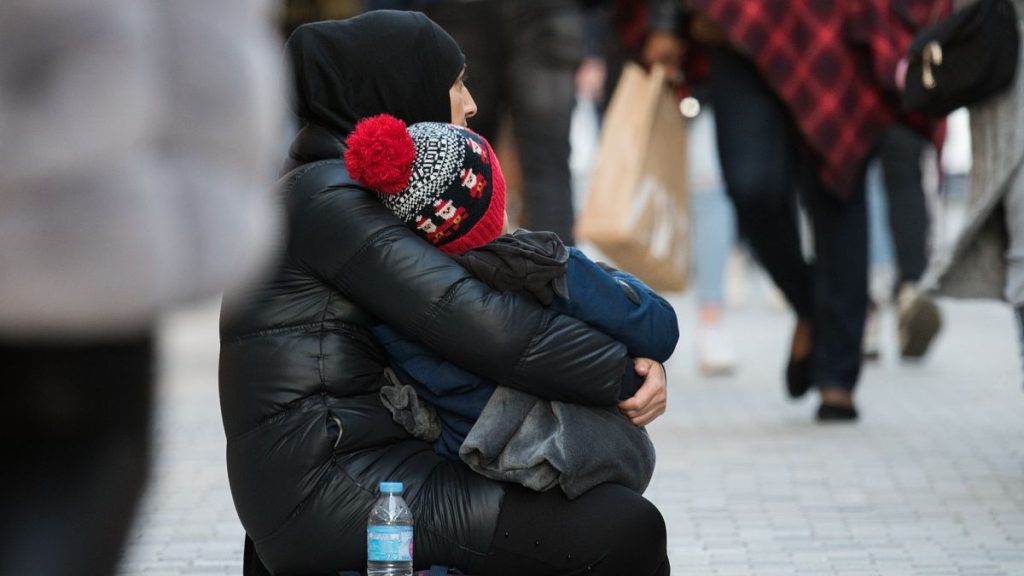The European Anti-Poverty Network report highlights fairer taxation as a means to reduce marginalization and combat poverty. Poverty has many faces, with women being the most common, such as Geneviève Baert, a single mother from Belgium who was pushed into poverty after losing her family business as a teenager. She is one of the 95.3 million people in the European Union at risk of social exclusion or poverty, with countries like Romania, Bulgaria, Greece, and Spain having high poverty rates. Women like Baert face challenges such as low pay, care responsibilities, part-time work, and temporary employment, leading to financial dependence on partners.
Women’s poverty is exacerbated by structural differences in all poverty parameters compared to men, according to the EAPN report. EAPN President Carlos Sosías calls for measures beyond current protection policies to address gender disparities and promote a better work-life balance. For Baert, access to kindergarten for her children played a crucial role in her emancipation, highlighting the importance of support for single parents who make up 80% of single parents with dependent children. Changes in taxation policies to support families in vulnerable situations are needed to address gender differences.
The rising cost of housing and high inflation pose significant risks to vulnerable groups, particularly young people and those with low education levels. In Portugal, a significant proportion of the population at risk of poverty is burdened by housing costs, leading to financial difficulties for millions of households. Energy poverty is also a concern, with higher rates among people at risk of poverty across EU member states. The inability to maintain adequate heating in winter is a common issue among groups at risk of poverty, further exacerbating their living conditions.
The EAPN report underscores the need for policy changes to address the root causes of poverty and social exclusion, such as fairer taxation and improved work-life balance for women. Baert’s experience highlights the long-lasting impacts of poverty on children, particularly in education where discrimination and lack of support can hinder their opportunities. The report also emphasizes the importance of access to essential services, such as housing, energy, and education, in reducing poverty and promoting social inclusion. By implementing targeted policies and support mechanisms, the EU can work towards a more equitable society for all its citizens, particularly those most vulnerable to poverty.
In conclusion, the EAPN report sheds light on the pervasive issue of poverty in the European Union, with women and vulnerable groups facing significant challenges due to structural inequalities and high living costs. Addressing these disparities requires a multi-faceted approach, including fairer taxation policies, improved access to essential services, and support for single parents and low-income families. By prioritizing social inclusion and poverty reduction, policymakers can work towards a more equitable and inclusive society where all individuals have the opportunity to thrive and overcome the barriers to poverty and marginalization.


